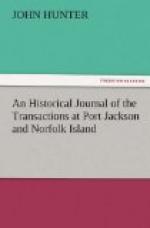Before we were ready to put to sea, a party of us had determined to make a short excursion into the country, where we had no doubt of finding its aspect more inviting than the prospect from the ships: for this purpose, we set out one morning very early, accompanied by two British gentlemen, who were merchants resident here, (Mr. Little and Mr. Armstrong,) and who had shown us upon every occasion much civility and attention: those gentlemen had previously provided horses, mules, provisions, etc. We directed our journey to the city of Laguna, which was, and is still called the capital of the island; it is said to be but three or four miles from Santa Cruz; but, whether from the badness of the road, (which is certainly the worst I ever saw in any country,) or the slowness of our progress from that cause, I thought it not less than twice that distance.
When we arrived at Laguna, we walked through many of the streets, which are very regular, and cross each other at right angles; the buildings in general are good, and some of the streets are wider than you generally see them in any of the Spanish or Portuguese towns: there are two parish churches, which have short square steeples, but they appear above all the other buildings; there are also two nunneries, and three or four convents, which are built in a quadrangular form, and have good gardens. In the middle of the town is a conduit, which supplies the inhabitants with water. This city stands on a plain of considerable extent, over part of which we rode, until we came to the foot of the hill from whence the town is supplied with water. We ascended the mountain, and traced the stream to its fountain-head, where we found it issuing from cavities in several parts of the hill, and was conveyed down the declivity in stone-troughs, and received on the plain by troughs of wood, supported about seven or eight feet above the ground by props; through this aqueduct, the water is carried to the center of the city, over a plain, from a distance of four or five miles.




